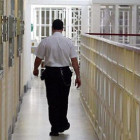
Jeannette Bocanegra, a community organizer from New York City, told a gathering of juvenile justice system practitioners and advocates in Houston last week that as a mom with a child who was incarcerated, “This system made me feel like I was a dysfunctional parent, a bad parent … without realizing I raised six other children who never went into the system.”
Now she and other members of Justice for Families, an advocacy group, are out to prove that, in her words, “We are not dysfunctional … the system is dysfunctional.”
Liane Rozzell, another parent on the panel, said afterwards, “We don’t have 24-hour remote control over our children.”
During the panel discussion, Rozzell said when her son was first put into detention she thought it might be a good thing, it would teach him a lesson. But she did not realize how negatively he would be affected by the experience. She also recalled being in a meeting where a teacher from a correctional institution off handedly mentioned sending kids to “an inherently violent place like a juvenile correctional center.”
After hearing that phrase, Rozzell said, “I was just stunned that we can just casually talk about sending our children to an inherently violent place.”
In June, Justice for Families will be releasing an in-depth report, underwritten by the Annie E. Casey Foundation. The report includes results of a survey of 1,000 family members who have had children incarcerated and examines how families of the incarcerated are portrayed by the media. Justice for Families co-director Grace Bauer says family involvement and networking is necessary because, “No one knows what it is like to struggle with a child in the system better than another parent.”
However, according to Bauer, early findings from the report reveal, “Families are not consulted.









